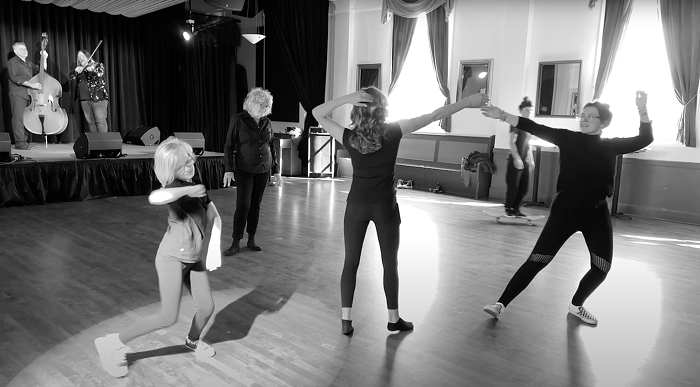IN 2013, Porches released a beautiful record called Slow Dance in the Cosmos that assuredly fell in the indie-rock category. Since then, Porches—the project of New York songwriter Aaron Maine—has shifted its sound. Maine started to teach himself how to record and edit on his own using Logic software. Perhaps more dramatically he began experimenting with synths and modern pop/R&B drum beats.
“I was feeling a little restless in the slower rock genre,” says Maine. “I wanted people to be able to dance to the music. There would be this moment [during a show] when the DJ would be playing, people would be getting down to it, but then we’d go on and the shift of the mood was so drastic. I felt bad demanding this different sort of attention from the audience.”
This change in Maine’s sound manifests itself on Pool, the LP Porches released in February. The album is Porches’ cleanest to date, even garnering the coveted “Best New Music” designation by Pitchfork. It’s a record typified as much by its densely packaged songwriting as its chic, sad-Brooklynite aesthetic. In the video for the single “Be Apart,” the band is seen despondently playing ping-pong and drinking milk while wearing matching black turtlenecks inside a beautiful New England mansion (everyone looks like Greek sculptures in hip clothing). The entire group is stone-faced during a song that, at its core, is about feeling disconnected in an overwhelmingly huge city that Maine just wants to be a part of.
“I’m really shy. I’ve had trouble dancing in public before,” admits Maine about his changing live performances. “You’d think embodying the new sound would go hand in hand, but I made the songs alone at my computer. This is the first time I’ve ever performed without a guitar in front of me. If the energy is right it feels great, but if it’s not I can feel like I have nothing to hide behind.”
In early September Porches followed the LP with the eight-song Water EP, six of which are demo versions of songs on Pool. It documents Maine’s changes and development as a songwriter, yet these demos often feel like entirely different, completed songs.
“Looking back on the demos, there was sort of this magic that is often hard to recreate when you’re recording a song a while after you’ve written it,” says Maine. “I thought it would be fun to document another part of the process that you don’t always see. It’s telling of how many forms a song can take before it ends up being released.”
Take a song like “Car.” On Pool it’s perhaps the most guitar driven, old-Porches-sounding track, with a dark jingling melody and Maine sounding off in a deep affirming echo, “Oh what a machine.” Yet on Water the guitar is replaced entirely by a medley of synthesizers, keyboards, and a snare-heavy drum machine beat. Maine’s croons are awash in the background of what’s more of a crystalline dance-pop track that could easily soundtrack the runway at a fashion show.
“I want to go out dancing more. When I was younger I was really into breakdancing, but I stopped,” says Maine. “Half of the beauty of dancing is just allowing yourself to throw caution to the wind and do this crazy thing in public. Now I’m trying to stop being afraid to look crazy and just get it all out.”
Maine’s live show is just as much an experiment as the new music. Though he plays the majority of his songs on guitar, for three or four he’s alone with the mic. Seeing him move about stage, adding Auto-Tuned vocals, is both jarring and intoxicating. It’s hard to imagine Maine feeling less than confident or out of place, though I have to remind myself that just over a year ago his set might have featured him sitting in a chair with a guitar in hand. Now a bleached-blond Maine even planks onstage during musical interludes. Every movement feels like a spur-of-the-moment decision, but is done with an alluring precision. While this can be a turnoff for some, it’s hard to look away from, and even harder not to dance.


















